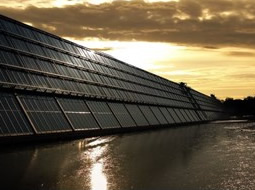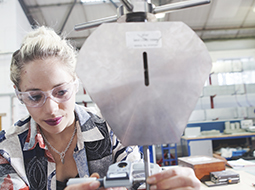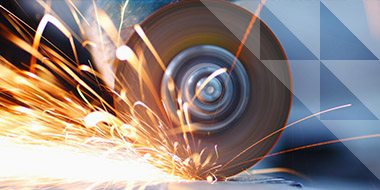-
Study
-
Quick Links
- Open Days & Events
- Real-World Learning
- Unlock Your Potential
- Tuition Fees, Funding & Scholarships
- Real World Learning
-
Undergraduate
- Application Guides
- UCAS Exhibitions
- Extended Degrees
- School & College Outreach
- Information for Parents
-
Postgraduate
- Application Guide
- Postgraduate Research Degrees
- Flexible Learning
- Change Direction
- Register your Interest
-
Student Life
- Students' Union
- The Hub - Student Blog
- Accommodation
- Northumbria Sport
- Support for Students
-
Learning Experience
- Real-World Learning
- Research-enriched learning
- Graduate Futures
- The Business Clinic
- Study Abroad
-
-
International
International
Northumbria’s global footprint touches every continent across the world, through our global partnerships across 17 institutions in 10 countries, to our 277,000 strong alumni community and 150 recruitment partners – we prepare our students for the challenges of tomorrow. Discover more about how to join Northumbria’s global family or our partnerships.
View our Global Footprint-
Quick Links
- Course Search
- Undergraduate Study
- Postgraduate Study
- Information for Parents
- London Campus
- Northumbria Pathway
- Cost of Living
- Sign up for Information
-
International Students
- Information for International Students
- Northumbria and your Country
- International Events
- Application Guide
- Entry Requirements and Education Country Agents
- Global Offices and Regional Teams
- English Requirements
- English Language Centre
- International student support
- Cost of Living
-
International Fees and Funding
- International Undergraduate Fees
- International Undergraduate Funding
- International Masters Fees
- International Masters Funding
- International Postgraduate Research Fees
- International Postgraduate Research Funding
- Useful Financial Information
-
International Partners
- Agent and Representatives Network
- Global Partnerships
- Global Community
-
International Mobility
- Study Abroad
- Information for Incoming Exchange Students
-
-
Business
Business
The world is changing faster than ever before. The future is there to be won by organisations who find ways to turn today's possibilities into tomorrows competitive edge. In a connected world, collaboration can be the key to success.
More on our Business Services-
Business Quick Links
- Contact Us
- Business Events
- Research and Consultancy
- Education and Training
- Workforce Development Courses
- Join our mailing list
-
Education and Training
- Higher and Degree Apprenticeships
- Continuing Professional Development
- Apprenticeship Fees & Funding
- Apprenticeship FAQs
- How to Develop an Apprentice
- Apprenticeship Vacancies
- Enquire Now
-
Research and Consultancy
- Space
- Energy
- AI Futures
- CHASE: Centre for Health and Social Equity
- NESST
-
-
Research
Research
Northumbria is a research-rich, business-focused, professional university with a global reputation for academic quality. We conduct ground-breaking research that is responsive to the science & technology, health & well being, economic and social and arts & cultural needs for the communities
Discover more about our Research-
Quick Links
- Research Peaks of Excellence
- Academic Departments
- Research Staff
- Postgraduate Research Studentships
- Research Events
-
Research at Northumbria
- Interdisciplinary Research Themes
- Research Impact
- REF
- Partners and Collaborators
-
Support for Researchers
- Research and Innovation Services Staff
- Researcher Development and Training
- Ethics, Integrity, and Trusted Research
- University Library
- Vice Chancellors Fellows
-
Research Degrees
- Postgraduate Research Overview
- Doctoral Training Partnerships and Centres
- Academic Departments
-
Research Culture
- Research Culture
- Research Culture Action Plan
- Concordats and Commitments
-
-
About Us
-
About Northumbria
- Our Strategy
- Our Staff
- Our Schools
- Place and Partnerships
- Leadership & Governance
- University Services
- Northumbria History
- Contact us
- Online Shop
-
-
Alumni
Alumni
Northumbria University is renowned for the calibre of its business-ready graduates. Our alumni network has over 253,000 graduates based in 178 countries worldwide in a range of sectors, our alumni are making a real impact on the world.
Our Alumni - Work For Us
The Advanced Manufacturing Technology group works on developing the next generation of cutting-edge manufacturing technologies and processes, as well as improving manufacturing systems, organisation and sustainability.
Areas of excellence include
- Graphene related materials (GRM) and their composites development and processes;
- Thin films and coatings;
- Energy conversion and storage systems fabrication and characterisation;
- Design, modelling, simulation and manufacturing;
- 3D Printing, Rapid and Additive Manufacturing;
- Development and manufacturing of materials and structures for noise and vibration control.; and
- Optimisation technology and deep space exploration
We pay special attention to the circular economy and life cycle engineering, sustainable process design, and technology and operations management. In addition, we work in close collaboration with a number of regional and international partners to develop and improve the performance of manufacturing products, processes and systems for pioneering scientific innovations and securing enterprise ventures.
Graphene Related Materials and their Composites Development and Processes
- Graphene related materials-structural self-healing Araldite adhesives
- Design of multi-functional hierarchical 3-phase GRM composites
- Lightweight self-healing architectured graphene-based nacre nanolaminates
- Upscaling to industry – GRM-based composites design and optimization
- 2 phase and 3 phase GRM-based polymer composites of structural applications
- Manufacturing process development and optimisation
Thin Film Fabrication and Characterisation
- GRM basic coating for self-cleaning and fast sanification
- Eco-friendly ultrahydrophobic GRM-based hybrid materials for marine foul-release coatings
- Durable and anti-corrosion/erosion GRM-based hybrid nanomaterials
- Innovative thin films for anti-icing/de-icing and light strike protection
- Ultra-precision thin film resistive coatings
- Superior hard-wearing mechanical coatings
- Biocompatible and antimicrobial coatings for healthcare applications
- Bulk and thin film coatings and ultra-precision thin film resistors
- Shape memory alloys for microactuators used in hydraulic and pneumatic systems
Energy Conversion and Storage Systems Fabrication and Characterisation
- Graphene hybrid-supercapacitors
- Nanostructured heterogeneous materials for Li-ion and all Solid-State LiB
- Nanostructured heterogeneous materials for Fuel Cells
- Synthesis of Nitrogen-Graphene/Metal Oxide Nanostructured Electrodes
- Synthesis of hybrid materials for energy conversion and storage
- Fabrication of new and smart materials for wearables, sensing and actuation application
Design, Modelling (including Materials and Processes), Simulation and Manufacturing
- CAM – Design to Manufacturing- Simulation & Analysis
- Development of fundamental material models capable of characterizing behaviours within a wide range of computations scales spanning form nano-to-macro scales
- Development novel constitutive laws CLs including progressive damage, failure criteria, interfaces, and behaviours under extreme conditions
- Implementation and validation using end-user FE software (e.g.LS-DYNA, ABAQUS),
- Comprehensive optimisation of geometry/material distribution techniques
- Multiple criteria decisions making in engineering design
- Lean manufacturing
3D Printing, Rapid and Additive Manufacturing
- Development of advanced lightweight products using Additive manufacturing techniques in polymers and metals.
- Generation of Topology optimized thermal and structural systems using additive production methods
- Development of new additive manufacturing systems and optimisation AM for bespoke manufacturing process for production.
- Design for Additive manufacturing knowledge exchange
- Reduction of manufacturing production cycle times
- Development of a production 3D sand printing process for complex sand cores
Development and Manufacturing of Materials and Structures for Noise and Vibration Control
- Vibro-acoustic properties of elasto-acoustic metamaterials
- Sound absorption and transmission loss of lightweight composite panels
- Sound absorption of micro fibrous/porous materials
Optimization Technology and Deep Space Exploration
- Control-oriented model for linear and nonlinear systems
- Machine learning based model predictive control for partially unknown dynamic systems
- Multi-objective optimisation with minimum calculation burden
- Autonomous guidance design for Mars/Lunar landing missions
- Intelligent control for landing in uncertain environment
- Precision landing guidance with minimum fuel consumption
Resources
Our extensive range of laboratories house world-leading engineering software and specialist equipment for product life cycle assessment and processing, characterising and optimising the properties of manufacturing processes and materials.
Our research group is supported by excellent manufacturing and materials characterisation facilities with a wide range of traditional machining equipment, including a Mazak 5-axis CNC milling machine and dynamometers for cutting trials and tooling development.
This is complemented by a range of additive manufacturing technologies such as Polyjet and laser liquid polymerisation (stereolithography), CF/GF/Kevlar composite polymer, fused deposition modelling, selective laser fusion and 3D ceramic printing processes. The physical manufacturing capability is supported by a range of inspection and digitising systems utilising small to large scale 3D scanning techniques.
We have dedicated laboratories for the fabrication and characterisation of thin films and coatings including direct current sputtering, radio frequency sputtering, thermal and electron beam evaporation and atomic layer deposition.
We have materials testing facilities for tensile, compression, torsion and fatigue, as well as analysis facilities that include a 3D micro coordinate measurement machine and surface roughness measurement device, state-of-the-art field-emission Scanning Electron Microscope (SEM), a Dynamic Mechanical Analyser (DMA), Nanoindenter, Atomic Force Microscopy (AFM), X-ray diffraction (XRD) and Secondary Ion Mass Spectrometer (SIMS).
The group combines an emphasis on a multi-discipline approach using analytics, computations and experiments with attention to applications in a broad range of industries such as industrial, automotive, defence, aerospace, energy and healthcare.
Group leadership and contacts
Leader: Prof. Ahmed Elmarakbi
Deputy Leader: Dr. Madeleine Combrinck
This research group forms part of the Department of Mechanical & Construction Engineering.
Academic team
Research relationships
This group is a part of the University’s multi-disciplinary research into the theme of Energy Futures.
Research from this group will be submitted to REF2021 under UoA 12: Engineering.
To view research papers emanating from this group, please click here to view Northumbria Research Link, our open access repository of research output from Northumbria University.
PhD opportunities
PhD Students, Postdocs, and Research Fellows are welcome to join the group. If you are interested in joining us, please contact Prof. Ahmed Elmarakbi to discuss available opportunities.
Please click on the links below to view current self-funded PhD opportunities:
Project title: Development of Metallic Powder Fibre Reinforced Sintered Parts by Additive Manufacturing (Dr. Phil Hackney)
Project title: Reduced-Order Modelling of Offshore Floating Wind Farm based on Deep Learning (Dr. Zi Lin)
Project title: Development of Novel Graphene Hybrid-Supercapacitors (Prof. Ahmed Elmarakbi)
News
Coming soon...
Research
- Civil Engineering Heritage and Future
- Engineering Materials Mechanics Group
- Fluid and Thermal Engineering
- Advanced Manufacturing Technology (AMT)
- Renewable Energy Technologies
- Smart Materials & Surfaces Laboratory (SMSL)
- Engineering Materials and Mechanics Group (EM²G)
- Faculty Education Research Group
- Industry-Academia Partnership
- Joint Academic Development Centre
Researchers within our Future Engineering multidisciplinary research theme are exploring what technologies will be heating our homes and driving our cars in 20 years time.
Get an insight into life at Northumbria with videos and 360 panoramas of the Department of Mechanical and Construction Engineering.
With a wide range of undergraduate, postgraduate and distance learning Mechanical & Construction Engineering courses, whatever you want to get out of university, let us show you why you want Northumbria University, Newcastle!
Our Mechanical & Construction Engineering students learn from the best – inspirational academic staff with a genuine passion for their subject. Our courses are at the forefront of current knowledge and practice and are shaped by world-leading and internationally excellent research.
Looking to study in with us in September? Our Undergraduate Open Day Events are the perfect opportunity for you to find out as much as you can about our wide range of courses and world-class facilities.
Latest News and Features

Northumbria expands results day support for students
Northumbria University is expanding and enhancing the support it provides to students receiving…
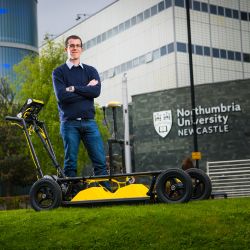
Northumbria University to host prestigious international conference on GPR technology
Scientists, engineers and researchers using and developing Ground Penetrating Radar (GPR) technology…
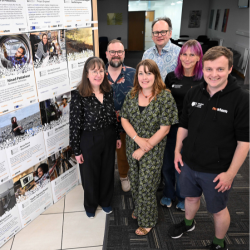
Northumbria STEM outreach project marks major milestone
An outreach group from Northumbria University is celebrating a decade of STEM engagement in…

EXPERT COMMENT: AI is gobbling up water it cannot replace – I’m working on a solution
In this article originally written for The Conversation*, Dr Muhammad Wakil Shahzad, Associate…
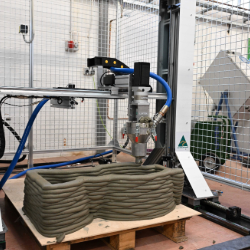
Northumbria awarded EU funding for sustainable 3D-printed construction research
Northumbria University has been awarded a prestigious Marie Skłodowska-Curie Actions (MSCA)…

Northumbria wins recognition for expanding access to higher education
Northumbria University has been named Higher Education Institution of the Year at a prestigious…



